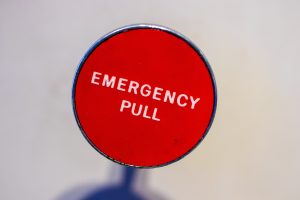Anxiety treatment FDA never approved is being abused in the U.S.
Phenibut is an anxiety drug that remains unapproved by the Food and Drug Administration (FDA), and yet, many Americans are using it and experiencing dangerous side effects. The drug is sold as an ingredient in some over-the-counter dietary supplements. A new study examining calls made to U.S. poison control center show between “2009 and 2019, there were 1,320 calls related to phenibut.” The data, published September 4 in the U.S. Centers for Disease Control and Prevention’s Morbidity and Mortality Weekly Report, also revealed a significant increase beginning in 2015, from well under 100 to between 300 and 400 in 2018 and 2019.
“More worrisome, the effects were sometimes life-threatening or fatal,” said researcher Janessa Graves, an associate professor at Washington State University. “Eighty users fell into comas and three died. This is reason for concern. Phenibut is easily accessible, and it may be becoming more popular.”

Phenibut was developed in the Soviet Union in the 1960s as a drug to be administered to cosmonauts needing to ease anxiety and insomnia. It has never been an approved drug in the United States. Yet, it is still showing up in over-the-counter supplements claiming to regulate mood and enhance brain function. It has also been abused for its euphoric effects, according to researchers.
“The U.S. Food and Drug Administration has ruled phenibut is not a dietary ingredient and cannot be listed as such in dietary supplements. But phenibut supplements are widely available online,” Graves noted. “In nearly half of calls related to phenibut, the person had used it with ‘abuse’ as the reason,” an examination of poison control calls found. It is known to have calming effects on the nervous system, which would decrease shakiness and panic. Yet, this also means it can lead to sedation, decrease consciousness and slow breathing.
“Based on internet search trends, public interest in phenibut has remained fairly stable in the past several years,” said Pat Aussem, of the nonprofit Partnership to End Addiction. “That said, the sharp rise in calls to poison control centers is concerning and may be attributable to people searching for and using anti-anxiety supplements without knowing their safety profiles. Consumers should not assume that dietary supplements are safe.”
When used in combination with other sedatives, including alcohols, opioids or benzodiazepines, the drug can be especially dangerous. The recent study found “40% of adults and 30% of people under age 18 had used phenibut with other substances,” leading to life-threatening results.
“The findings highlight a bigger issue,” according to Dr. Peter Lurie, president of the Center for Science in the Public Interest (CSPI), a consumer advocacy group. The group has been pushing the FDA to take action against manufacturers and stores that sell supplements with unapproved ingredients, and the federal agency recently sent warning letters to U.S. companies.
“In this age of COVID-19,” Aussem said, “many people are trying to cope with anxiety and may wish to find a ‘natural’ product to alleviate their symptoms. But, talking to a health care provider about their concerns is the safest approach.”
Sources:
Dangerous Abuse of Anxiety Drug Phenibut Is on the Rise
Poison centers report big increase in calls about anti‑anxiety drug phenibut


Join the conversation!